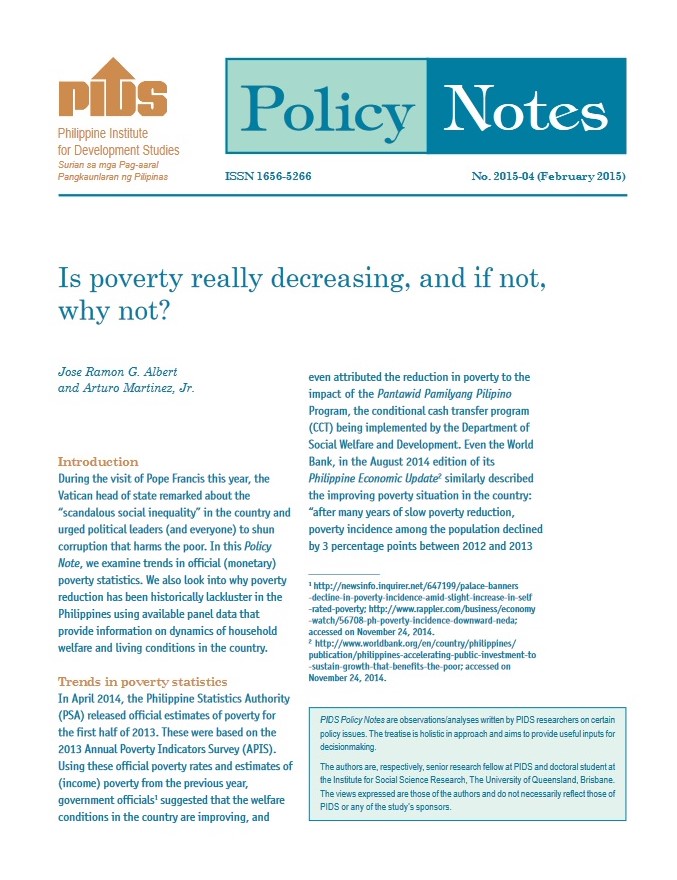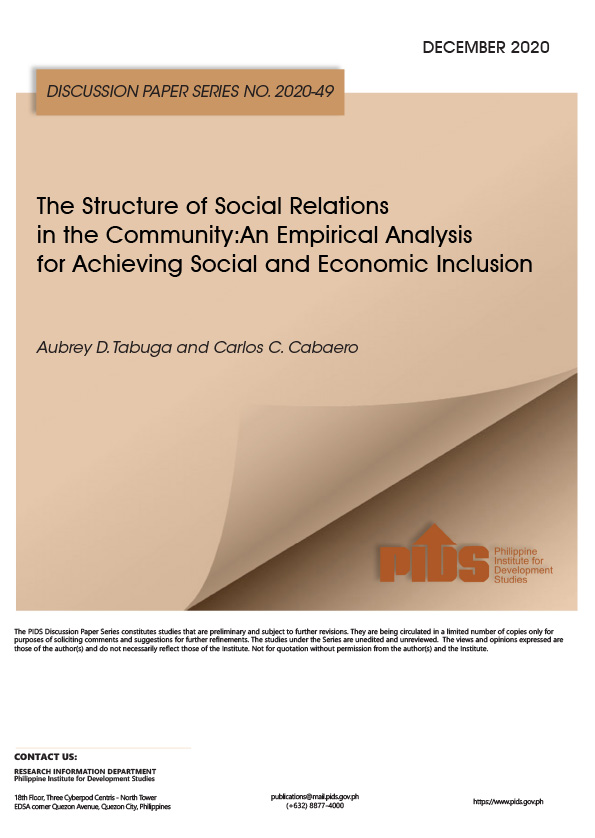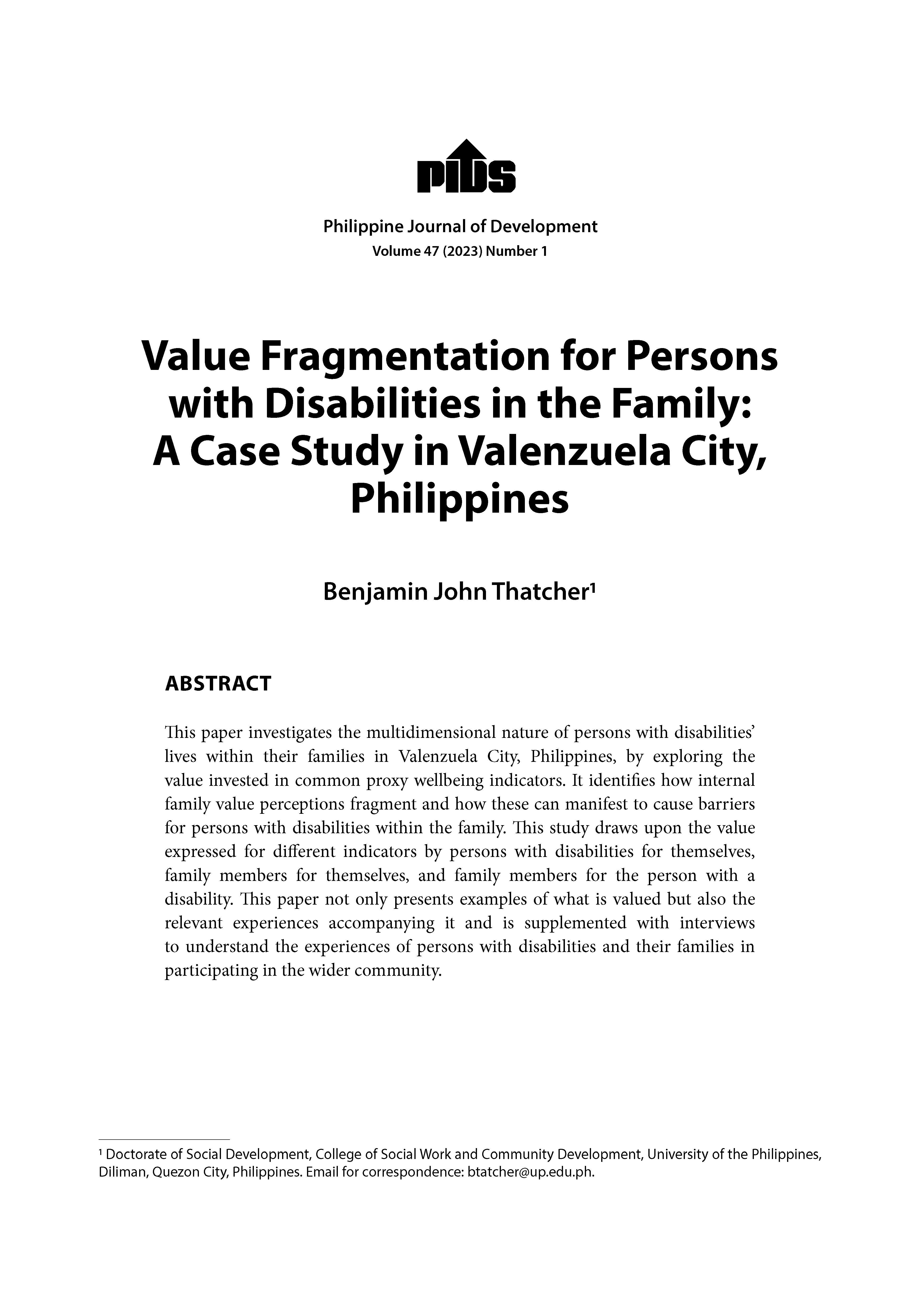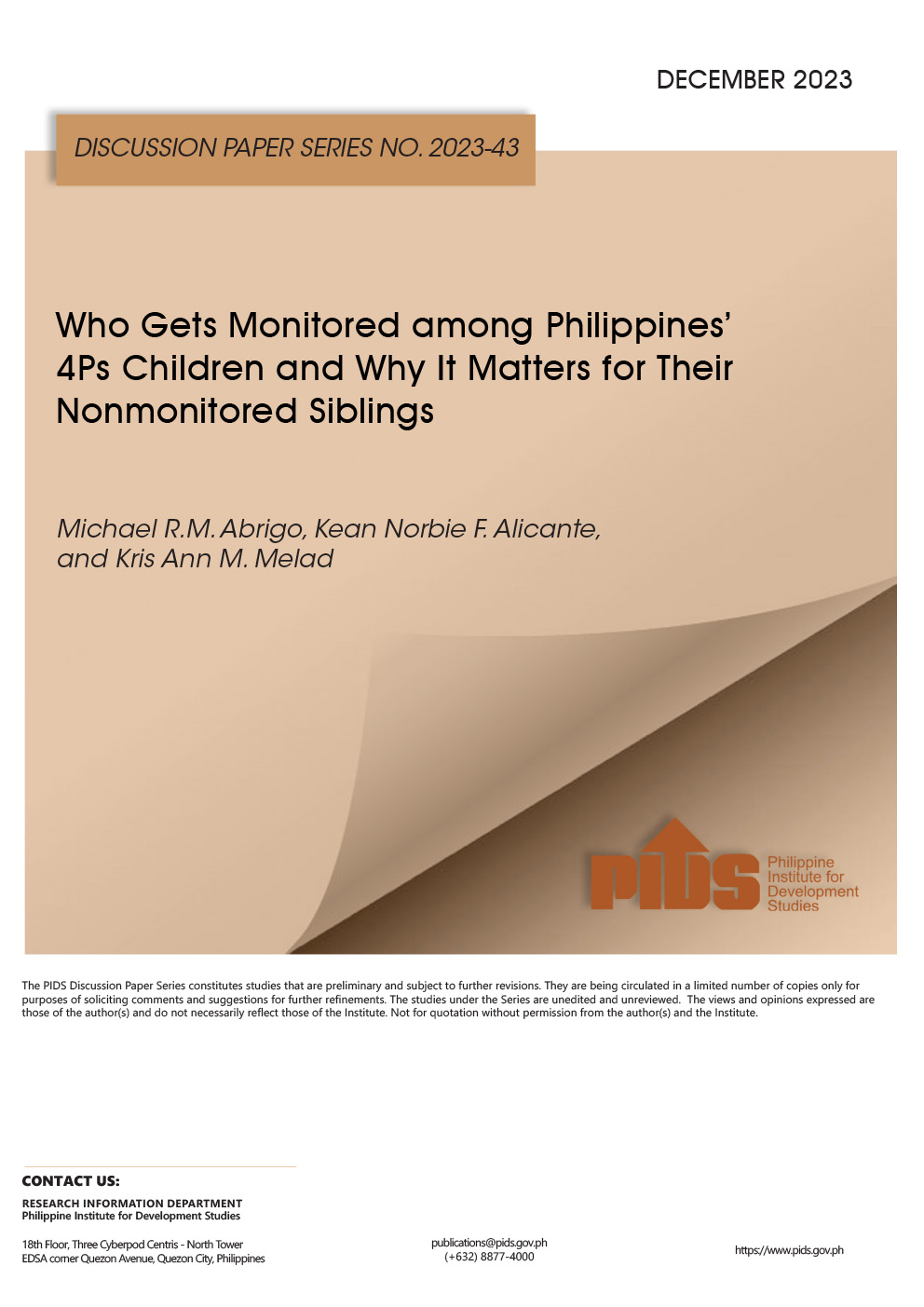The Philippines has recently experienced economic growth despite the global economic slowdown. But there are people who wonder why economic growth has not translated into poverty reduction. The levels of income inequality have also barely changed, a pattern that could mean new opportunities created by economic growth do not allow the income of the poor to catch up with the rest. Inequality is a natural outcome of economic growth since people with access to capital are more likely to reap the benefits of growth first. What is critical is to make economic growth truly inclusive.
This Policy Note examines trends in official (monetary) poverty statistics. It also looks into why poverty reduction has been historically lackluster in the Philippines using available panel data that provide information on dynamics of household welfare and living conditions in the country. It pointed out that in the period 2003-2009, poor Filipinos were more likely to experience higher income growth but some nonpoor have also been vulnerable to slide into poverty. This suggests that government should not only be concerned with the poor, but should also have policy instruments to assist those who are nonpoor but plagued by economic risks.
Citations
This publication has been cited 1 time
- Martinez, Arturo Jr. et.al. 2015. How income segmentation affects income mobility: Evidence from panel data in the Philippines. Asia and the Pacific Policy Studies 2(3), 590-608. Crawford School of Public Policy, The Australian National University and Wiley Publishing Asia.













